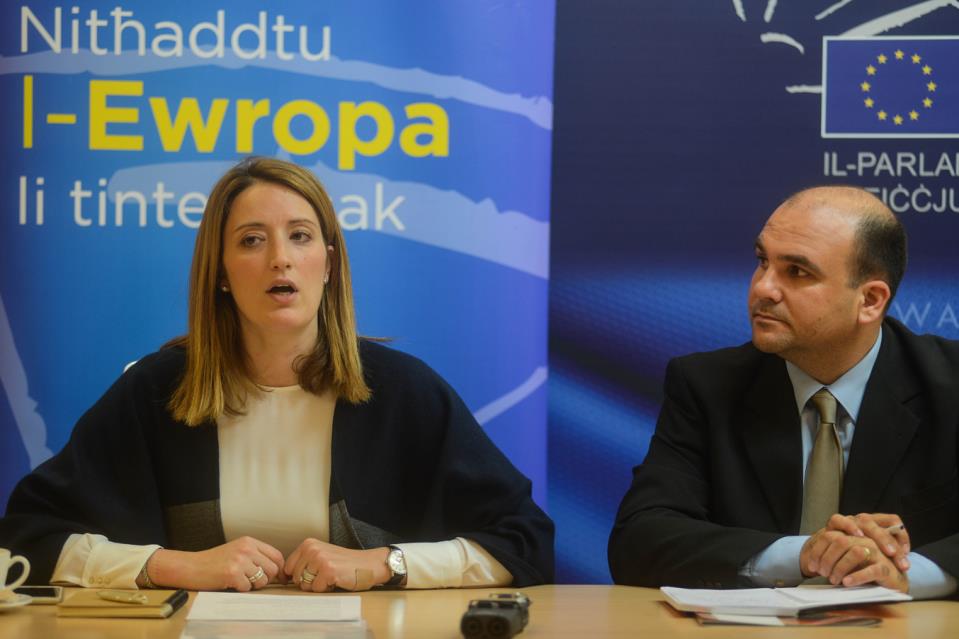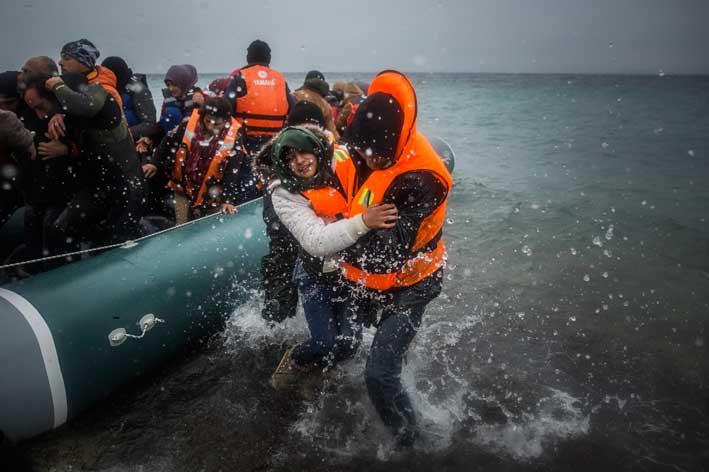Europe's returns policy, where migrants not eligible for international protection are sent back to the country of origin, is not working well, PN MEP Roberta Metsola said today.
On this point, she stressed that hastening asylum seeker processing, as well as information campaigns in countries like Morocco and Tunisia (where persons emigrating to Europe illegally are generally not granted protection in Europe) could help in this regard.
Dr Metsola was delivering a press briefing at Dar L-Ewropa in Valletta this afternoon on a report she co-authored with S&D MEP Kashetu Kyenge. It delves into different aspects of migration, outlining how the EU should respond to the influx of migrants.
The report also acknowledges the European Commission's list of safe countries of origin, and said that if such a list would become obligatory, "it could become an important tool to facilitate the asylum process, including returns".

On Frontex, the aim is to replace the agency with a European Border and Coast Guards to ensure integrated border management at the external borders with a view to managing migration, while ensuring high levels of internal security.
These border guards have been the topic of some controversy as of late, as it has been said that border guards could be sent to countries even if the country in question is unwilling to take certain measures in the first place. Dr Metsola mentioned that this was essentially a knee-jerk reaction to the situation in Greece, and said that it is similar to what happened during the financial discussions regarding the Greek financial crises. The border guards will essentially be a reformulated Frontex, she said, and explained that one still needs to see how exactly they would operate, etc.
She said that certain regulations oblige any person coming from outside of Schengen and who is applying for asylum, to be fingerprinted should they not have documents. This, she said, was not happening in Greece. Dr Metsola proceeded to criticise the Dublin procedures and said that they require any country that fingerprints a refugee, has to take responsibility for them, thus meaning that if they are in another EU country, and their travel documents are expired, they would be sent back to the country that took his fingerprints. She welcomed recent decisions to reform these Dublin regulations.
"The abolition of internal border controls in Schengen has to go hand-in-hand with strengthening external borders. This is pre-requisite for Schengen to function properly," she said.
The MEP highlighted another recently released report, that indicates that every lorry that spends an hour stuck in a border checkpoint costs €50. She said that Maltese lorry drivers on mainland Europe have already complained about this.

The MEP mentioned another section in the report she was presenting, that discussed the need to stop the desperation of people crossing the Mediterranean, by offering them other routes to reach Europe, thus minimising the tragedy at sea. She also mentioned the importance of security.
She also spoke of integration, and described it as a two-way process. "Of course people granted protection must be given all the rights they are entitled to, and yes, we must do more to keep families together, but at the same time it is also fair to expect respect for the values upon which our union is built".The report stresses the need for member states to offer refugees support and opportunities to better integrate and build their life in their new society. It also reaffirms that better recognition of foreign qualifications is one practical way of ensuring that third-country nationals already present in an EU country can integrate better.
Europe has been in the midst of a major migration crisis as of late, with the most recent incident seeing Sweeden consider rejecting 80,000 asylum applications, and 24 migrants die at sea after a boat capsized between Turkey and Greece.